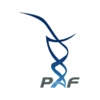PAF Awards $44,253 New Research Grant
Rajavel Elango, PhD, University of British Columbia
“Optimizing amino acids in medical foods to manage propionic acidemia”
Propionic Acidemia (PA) is primarily caused by an enzymatic defect, propionyl-CoA carboxylase (PCC), in the catabolic pathway of valine, isoleucine and other propiogenic precursors. The dietary management of PA mainly depends on protein restriction from food to reduce supply of propiogenic amino acids, and the use of special medical foods. These medical foods contain all essential amino acids and nutrients, but no propiogenic compounds. Recently, concerns have been raised about their use, due to the imbalanced content of the Branched Chain Amino Acids (BCAA) – high leucine, to minimal or no valine and isoleucine. The imbalanced mixture of BCAA negatively impacts plasma concentrations of valine and isoleucine, and has been proposed to affect growth in pediatric PA patients.
In an ongoing retrospective natural history study (n=4), patients with PA treated at our center from birth (or diagnosis) to age 18y, we observed that higher intake of medical food (compared to intact protein) results in lower ht-for-age Z scores. Based on these pilot data, we propose that there is an immediate need to determine the optimal amounts of leucine to be present in the medical foods.
Therefore, the specific objectives of the current study are to:
- Stable isotope studies
- Determine the ideal ratio among BCAA in children using the stable isotope-based indicator amino acid method to optimize protein synthesis in a Proof-of-Principle approach.
- Test the ratio among BCAA using the same stable isotope-based method in our cohort of PA patients to determine impact on protein synthesis, and plasma metabolite responses.
- Determine the impact of the use of natural (intact) vs formula (medical food) protein on anthropometric, biochemical and clinical outcomes via a retrospective natural history study of PA patients treated at BC Children’s Hospital.
Recent dietary guidelines for PA are discouraging the reliance on medical foods as a sole dietary source. However most individuals with PA are at risk for malnutrition and depend on these medical foods as an easy tolerable source of energy and protein. Thus, determining the optimal ratio of BCAA in PA medical foods is necessary to optimize protein synthesis, promote anabolism, growth and prevent the accumulation of toxic metabolites.
Our laboratory, equipped with use of novel stable isotope tracers to examine protein and amino acid metabolism, is ideally suited to address the question of the ideal BCAA ratio to be used for dietary management of PA and potentially impact health outcomes.
